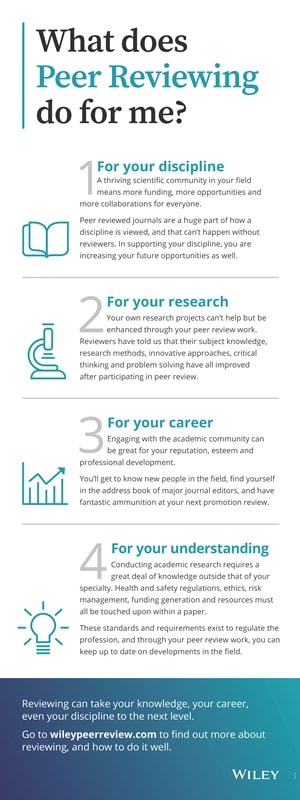Developing a Keen Eye for Cinema: Building Your Foundation
To become a credible movie reviewer, it is essential to develop a deep understanding of film history, genres, and techniques. This foundation will help aspiring reviewers analyze and critique movies effectively, providing readers with insightful and informative reviews. A strong knowledge of film history enables reviewers to contextualize movies within the broader cinematic landscape, recognizing influences, trends, and innovations. Understanding genres, such as action, comedy, or drama, allows reviewers to evaluate films within their respective categories, acknowledging conventions and subversions. Familiarity with filmmaking techniques, including cinematography, editing, and sound design, enables reviewers to appreciate the craftsmanship that goes into creating a movie.
Aspiring movie reviewers can develop their knowledge by watching a wide range of films, including classics, blockbusters, and independent releases. They can also read books on film history, theory, and criticism, as well as online resources, such as film blogs and websites. Additionally, attending film festivals, workshops, and seminars can provide opportunities to learn from industry professionals and network with other film enthusiasts. By building a strong foundation in film knowledge, aspiring reviewers can establish themselves as authorities in the field, providing readers with trustworthy and engaging reviews.
Furthermore, developing a keen eye for cinema involves cultivating critical thinking skills, enabling reviewers to evaluate films objectively and subjectively. This involves analyzing a movie’s narrative structure, character development, and themes, as well as its technical aspects, such as cinematography and sound design. Reviewers must also consider the film’s cultural and social context, acknowledging the ways in which movies reflect and shape societal attitudes and values. By combining film knowledge with critical thinking skills, aspiring reviewers can develop a nuanced and informed approach to movie criticism, providing readers with thoughtful and engaging reviews.
Ultimately, becoming a movie reviewer requires a passion for cinema, a willingness to learn, and a commitment to critical thinking. By developing a deep understanding of film history, genres, and techniques, aspiring reviewers can establish themselves as credible and authoritative voices in the field, providing readers with insightful and informative reviews that enhance their appreciation and understanding of movies.
Watching and Analyzing Films: A Critical Eye
Watching movies critically is a crucial step in becoming a movie reviewer. It involves paying attention to various elements that contribute to a film’s overall quality, including cinematography, direction, and performances. To develop a critical eye, aspiring reviewers should learn to analyze films objectively, considering both the technical and artistic aspects of the movie.
When watching a film, reviewers should take notes on the cinematography, including the use of lighting, camera angles, and composition. They should also pay attention to the direction, including the pacing, tone, and overall vision of the film. Additionally, reviewers should evaluate the performances, considering the actors’ ability to bring depth and nuance to their characters.
To take notes effectively, reviewers can use a template or create their own system for organizing their thoughts. This can include sections for cinematography, direction, performances, and overall impressions. By taking detailed notes, reviewers can develop a comprehensive understanding of the film and identify key elements that contribute to its overall quality.
Identifying key elements involves analyzing the film’s narrative structure, character development, and themes. Reviewers should consider how the film’s technical aspects, such as editing and sound design, contribute to the overall narrative. They should also evaluate the film’s cultural and social context, acknowledging the ways in which movies reflect and shape societal attitudes and values.
By developing a critical eye, aspiring reviewers can provide readers with insightful and informative reviews that enhance their appreciation and understanding of movies. This involves balancing subjective opinions with objective analysis, providing readers with a comprehensive understanding of the film’s strengths and weaknesses.
Furthermore, watching and analyzing films critically can help reviewers develop a unique voice and perspective. By considering multiple viewpoints and evaluating the film’s technical and artistic aspects, reviewers can provide readers with a nuanced and informed review that sets them apart from other critics.
Ultimately, becoming a movie reviewer requires a passion for cinema, a willingness to learn, and a commitment to critical thinking. By developing a critical eye and learning to analyze films objectively, aspiring reviewers can establish themselves as credible and authoritative voices in the field, providing readers with thoughtful and engaging reviews that enhance their appreciation and understanding of movies.
Writing Engaging Reviews: Finding Your Unique Voice
Writing compelling and informative reviews is a crucial step in becoming a successful movie reviewer. To engage readers and establish a credible reputation, reviewers must find their unique voice and tone. This involves balancing subjective opinions with objective analysis, providing readers with a comprehensive understanding of the film’s strengths and weaknesses.
The tone of a review is critical in conveying the reviewer’s opinion and engaging the reader. A tone that is too negative or too positive can be off-putting, while a tone that is informative and analytical can be engaging and persuasive. Reviewers should aim to find a tone that is conversational and approachable, yet still maintains a level of professionalism and expertise.
The style of a review is also important in conveying the reviewer’s unique voice. Reviewers should aim to write in a clear and concise manner, avoiding jargon and technical terms that may be unfamiliar to readers. The use of vivid language and descriptive phrases can help to bring the film to life and engage the reader’s senses.
The structure of a review is also critical in conveying the reviewer’s unique voice. Reviewers should aim to write in a logical and coherent manner, starting with a brief summary of the film and then moving on to a more in-depth analysis. The use of headings and subheadings can help to break up the text and make the review easier to read.
One of the most important aspects of writing a review is finding a balance between subjective opinion and objective analysis. Reviewers should aim to provide readers with a comprehensive understanding of the film’s strengths and weaknesses, while also conveying their own unique perspective and opinion. This involves being honest and transparent about one’s own biases and prejudices, while also providing evidence and examples to support one’s arguments.
Ultimately, the key to writing engaging reviews is to find a unique voice and tone that sets one apart from other reviewers. By being conversational, analytical, and informative, reviewers can establish a credible reputation and engage readers in a way that is both entertaining and informative.
For those looking to become a movie reviewer, it is essential to practice writing reviews and developing one’s unique voice. This involves watching a wide range of films, taking notes, and writing reviews that are both informative and engaging. By doing so, aspiring reviewers can develop the skills and expertise needed to succeed in this field and provide readers with high-quality reviews that are both entertaining and informative.
Building Your Brand: Establishing an Online Presence
Establishing a professional online presence is crucial for aspiring movie reviewers who want to build a reputation and attract a loyal following. A well-designed website or blog is essential for showcasing reviews, sharing opinions, and connecting with readers. In this article, we will discuss the importance of building a strong online presence and provide tips on how to promote reviews and engage with readers.
A professional website or blog is the foundation of a strong online presence. It provides a platform for reviewers to share their opinions, showcase their expertise, and connect with readers. When building a website or blog, reviewers should consider the following factors: design, content, and functionality. A clean and modern design is essential for creating a positive first impression, while high-quality content and regular updates are necessary for attracting and retaining readers.
In addition to building a website or blog, reviewers should also leverage social media platforms to promote their reviews and engage with readers. Social media platforms such as Twitter, Facebook, and Instagram provide a powerful way to reach a wider audience, share opinions, and connect with readers. Reviewers should create profiles on these platforms and use them to share their reviews, engage with readers, and participate in online discussions.
Promoting reviews is also crucial for building a strong online presence. Reviewers can promote their reviews by sharing them on social media platforms, participating in online communities, and collaborating with other reviewers. They can also use search engine optimization (SEO) techniques to improve the visibility of their website or blog and attract more readers.
Engaging with readers is also essential for building a strong online presence. Reviewers should respond to comments and messages, participate in online discussions, and create a community around their website or blog. This helps to build trust, establish credibility, and attract a loyal following.
Furthermore, building a strong online presence requires consistency and persistence. Reviewers should regularly update their website or blog with new content, engage with readers, and promote their reviews. This helps to build momentum, establish credibility, and attract a loyal following.
By building a strong online presence, aspiring movie reviewers can establish themselves as credible and authoritative voices in the film industry. They can attract a loyal following, promote their reviews, and engage with readers. With persistence and dedication, reviewers can build a successful online presence and achieve their goals.
Networking and Collaboration: Connecting with Other Reviewers and Industry Professionals
Connecting with other film reviewers, critics, and industry professionals is an essential step in becoming a successful movie reviewer. Networking and collaboration can help reviewers gain exposure, build their reputation, and stay up-to-date with the latest industry trends. In this article, we will discuss the benefits of networking and collaboration and provide tips on how to attend film festivals, join online communities, and participate in podcasts or interviews.
Attending film festivals is an excellent way to connect with other reviewers and industry professionals. Film festivals provide a platform for reviewers to watch new releases, meet filmmakers, and network with other critics. Reviewers can also attend panel discussions, workshops, and seminars to learn more about the film industry and stay up-to-date with the latest trends.
Joining online communities is another way to connect with other reviewers and industry professionals. Online communities such as Facebook groups, Reddit forums, and Twitter chats provide a platform for reviewers to share their opinions, ask questions, and learn from others. Reviewers can also participate in online discussions, share their reviews, and engage with other critics.
Participating in podcasts or interviews is an excellent way to gain exposure and build a reputation as a movie reviewer. Reviewers can participate in podcasts or interviews to share their opinions, discuss new releases, and provide insights into the film industry. This can help reviewers build their reputation, gain exposure, and attract new readers to their website or blog.
Collaborating with other reviewers and industry professionals can also help reviewers gain exposure and build their reputation. Reviewers can collaborate with other critics to write reviews, participate in podcasts or interviews, and attend film festivals. This can help reviewers build their network, gain exposure, and stay up-to-date with the latest industry trends.
Furthermore, networking and collaboration can help reviewers stay up-to-date with the latest industry trends. By connecting with other reviewers and industry professionals, reviewers can learn more about new releases, changes in distribution and exhibition, and the latest developments in the film industry. This can help reviewers provide more informed and insightful reviews, which can attract new readers and build their reputation.
By networking and collaborating with other reviewers and industry professionals, aspiring movie reviewers can gain exposure, build their reputation, and stay up-to-date with the latest industry trends. This can help reviewers achieve their goals, attract new readers, and become successful movie reviewers.
Staying Up-to-Date: Keeping Current with New Releases and Industry Trends
Staying current with new releases and industry trends is crucial for aspiring movie reviewers who want to establish themselves as credible and authoritative voices in the film industry. By keeping up-to-date with the latest developments in the industry, reviewers can provide readers with informed and insightful reviews that reflect the current cinematic landscape.
New releases are a vital part of the film industry, and reviewers should make it a point to watch and review the latest movies. This includes mainstream blockbusters, independent films, and foreign language films. By watching and reviewing new releases, reviewers can stay current with the latest trends and developments in the industry, and provide readers with a comprehensive understanding of the cinematic landscape.
Industry trends are also an essential aspect of the film industry, and reviewers should stay informed about the latest developments in distribution, exhibition, and marketing. This includes changes in the way movies are distributed, such as the rise of streaming services, and changes in the way movies are exhibited, such as the increasing popularity of IMAX and 3D formats.
To stay current with new releases and industry trends, reviewers can follow film industry news and publications, such as Variety and The Hollywood Reporter. They can also attend film festivals and screenings, and participate in online communities and forums where film enthusiasts and critics discuss the latest movies and industry trends.
Furthermore, reviewers can also use social media platforms to stay current with new releases and industry trends. By following film industry professionals, critics, and publications on social media, reviewers can stay informed about the latest developments in the industry, and provide readers with timely and relevant reviews.
By staying current with new releases and industry trends, aspiring movie reviewers can establish themselves as credible and authoritative voices in the film industry. They can provide readers with informed and insightful reviews that reflect the current cinematic landscape, and help readers make informed decisions about which movies to watch.
Ultimately, staying current with new releases and industry trends is essential for aspiring movie reviewers who want to succeed in the film industry. By staying informed about the latest developments in the industry, reviewers can provide readers with high-quality reviews that are both informative and engaging.
Overcoming Challenges: Dealing with Criticism and Rejection
As a movie reviewer, one of the most significant challenges you will face is dealing with criticism and rejection. Not everyone will agree with your opinions, and some may even be hostile towards your reviews. However, it’s essential to develop a thick skin and maintain a positive attitude in the face of adversity.
Criticism can come in many forms, including negative comments, low traffic, and even personal attacks. However, it’s crucial to remember that criticism is a natural part of the review process, and it’s not a reflection of your worth as a reviewer. Instead of taking criticism personally, try to use it as an opportunity to learn and grow.
One way to deal with criticism is to focus on the constructive feedback. Look for comments that provide specific suggestions or ideas for improvement, and use them to refine your review style. Additionally, try to engage with your critics in a respectful and professional manner. This can help to build trust and credibility with your readers, and demonstrate your commitment to providing high-quality reviews.
Rejection is another challenge that movie reviewers may face. Not every review will be well-received, and some may even be rejected by publications or websites. However, it’s essential to remember that rejection is a normal part of the review process, and it’s not a reflection of your abilities as a reviewer.
Instead of getting discouraged by rejection, try to focus on the opportunities that are available to you. Look for other publications or websites that may be interested in your reviews, and be open to feedback and suggestions from editors and readers. Additionally, try to use rejection as an opportunity to learn and grow, and to refine your review style.
Ultimately, overcoming challenges is an essential part of becoming a successful movie reviewer. By developing a thick skin, maintaining a positive attitude, and focusing on the opportunities available to you, you can build a successful career as a movie reviewer and provide high-quality reviews to your readers.
As a movie reviewer, it’s also essential to remember that your opinions are subjective, and not everyone will agree with them. However, by being respectful, professional, and open to feedback, you can build trust and credibility with your readers, and establish yourself as a credible and authoritative voice in the film industry.
Turning Your Passion into a Career: Monetizing Your Reviews
As a movie reviewer, turning your passion into a career requires more than just writing high-quality reviews. It also requires finding ways to monetize your content and build a sustainable business model. In this article, we will discuss the various ways to monetize your reviews, including affiliate marketing, advertising, and sponsored content.
Affiliate marketing is a popular way to monetize reviews, especially for movie reviewers who focus on new releases. By partnering with online retailers or streaming services, reviewers can earn a commission for each sale or subscription generated through their unique referral link. This can be a lucrative way to monetize reviews, especially for reviewers who have a large following or high engagement rates.
Advertising is another way to monetize reviews, especially for reviewers who have a large audience or high traffic rates. By partnering with brands or advertising networks, reviewers can display ads on their website or social media channels and earn revenue based on clicks or impressions. This can be a lucrative way to monetize reviews, especially for reviewers who have a large following or high engagement rates.
Sponsored content is another way to monetize reviews, especially for reviewers who have a large following or high engagement rates. By partnering with brands or studios, reviewers can create sponsored content that promotes a particular movie or product. This can be a lucrative way to monetize reviews, especially for reviewers who have a large following or high engagement rates.
However, monetizing reviews requires more than just finding ways to earn revenue. It also requires balancing financial goals with artistic integrity and maintaining a credible reputation. Reviewers must ensure that their content remains high-quality and unbiased, even when working with brands or studios. This requires a delicate balance between financial goals and artistic integrity, but it is essential for building a sustainable business model.
Ultimately, turning your passion into a career as a movie reviewer requires more than just writing high-quality reviews. It also requires finding ways to monetize your content and build a sustainable business model. By exploring the various ways to monetize reviews, including affiliate marketing, advertising, and sponsored content, reviewers can build a successful career and turn their passion into a lucrative business.
As a movie reviewer, it’s essential to remember that monetizing reviews is not just about earning revenue; it’s also about building a sustainable business model that aligns with your artistic integrity and values. By finding ways to balance financial goals with artistic integrity, reviewers can build a successful career and turn their passion into a lucrative business.








